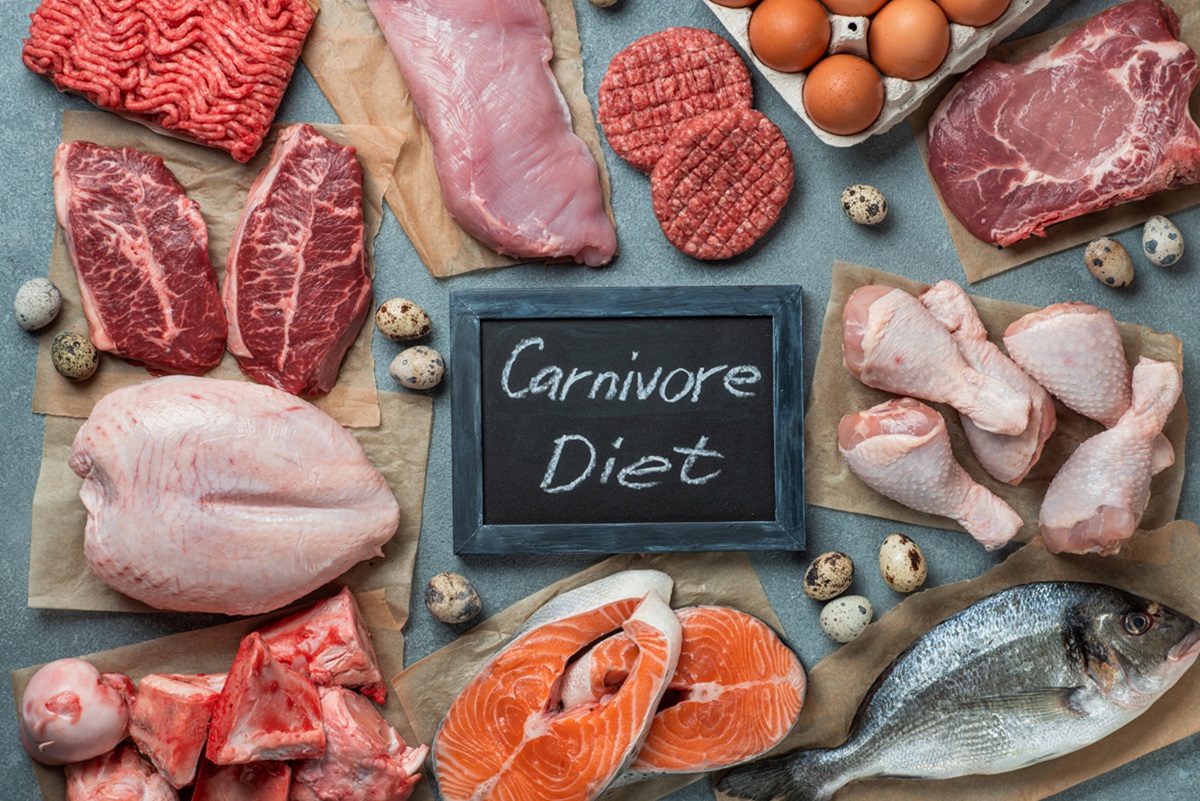How to Start the Carnivore Diet
May 28, 2025
By: Saint Alphonsus Marketing Team
Categories: Healthcare 101
The carnivore diet, focusing only on animal-based foods, has become popular for its claimed health benefits and easiness. Supporters think that by excluding plant-based foods, one can improve health, lose weight, and enhance mental clarity. This blog explores the main ideas of the carnivore diet. How to follow it, what is on the approved food list, what are the potential health benefits, and what considerations should be kept in mind.
What is the Carnivore Diet?
This diet, known as a zero-carb diet, consists entirely of animal products. These include meat, fish, eggs, and some dairy. The main idea is that humans thrive on an animal-based diet while avoiding all plant foods. Proponents argue this diet can lead to weight loss, improved mental clarity, and reduced inflammation.
This diet draws from ancestral eating practices where humans primarily ate animal products. Supporters often reference the dietary habits of hunter-gatherers, highlighting the importance of meat. Its rise in popularity has seen many individuals share success stories online, seeking other options to usual dietary guidelines.
Unlike veganism or the Mediterranean diet, this diet excludes all plant foods. While the Mediterranean diet encourages a mix of plant-based foods, healthy fats, and lean proteins, and veganism focuses solely on plants, the carnivore diet emphasizes animal products only. This raises questions about nutrient diversity and health impacts, making it essential for individuals to consult healthcare providers before starting such a restrictive diet.
How to Follow It
Starting can be a transformative experience. Begin by removing non-meat items from your pantry to reduce temptations. Plan meals around various meats—beef, pork, chicken, and fish are excellent options. Aim for at least two meat-based meals daily, including organ meats and fatty cuts for nutritional balance.
Transitioning can be tough and easing into the carnivore diet through a low-carb, high-fat approach may help your body adjust to burning fat rather than carbs. Staying hydrated and ensuring adequate salt intake can alleviate initial discomfort.
Challenges such as cravings for carbs and adjusting to dietary restrictions are common. To combat these, stock a variety of meats to prevent boredom and ensure nutrient intake. Engaging with a supportive community can provide encouragement and tips. Patience is vital as your body adapts; with commitment, navigating the carnivore diet can be successful.
Foods to Eat
The carnivore diet centers on animal-based foods, so understanding which meats and products are allowed is crucial. Acceptable meats include beef, pork, lamb, chicken, and fish. Processed meats like bacon and sausages are permitted if free from additives. Eggs and dairy (if tolerated) can also add variety and nutrition.
Choosing high-quality animal products is essential. Opting for grass-fed, pasture-raised, and organic meats supports sustainable practices and offers better nutrition, including more omega-3s and fewer additives compared to conventional options.
Incorporating organ meats, such as liver and kidney, can significantly enhance your nutrient intake. These options are rich in vitamins and minerals, providing benefits like increased energy and improved immune function. A diverse intake of carnivore-friendly foods helps meet nutritional needs while adhering to the diet's principles.
Foods to Avoid
Following the carnivore diet means removing various foods to gain its benefits. Avoid all fruits, vegetables, grains, legumes, and most dairy products, with exceptions for high-fat options like butter and cheese. Processed foods, sugars, and artificial additives should also be eliminated, as they contradict the diet’s principles.
A common mistake for newcomers is assuming any animal-derived product is acceptable. It’s crucial to prioritize whole cuts of meat, organ meats, and healthy fats from quality sources to maintain nutritional adequacy.
Understanding food labels is vital. Many processed foods may contain hidden sugars, starches, or preservatives that can hinder your goals. Always read labels carefully and avoid products with non-animal derived ingredients. Staying informed about your food choices is key to successfully following the carnivore diet.
Health Benefits
The carnivore diet has gained attention for potential health benefits. A significant advantage is weight loss and improved body composition. By eliminating carbs and focusing on protein and fats, many find reduced hunger, leading to lower caloric intake and weight loss.
The diet may also positively influence metabolic health and inflammation. Some studies indicate that low-carb, high-fat diets can enhance insulin sensitivity and reduce inflammation, potentially lowering chronic disease risks.
Additionally, many followers report enhanced mental clarity and energy. Stabilizing blood sugar and providing a steady nutrient supply may lead to increased focus and energy. The simplicity of an animal-based diet can eliminate energy fluctuations common in traditional diets, fostering a more consistent lifestyle.
Considerations and Risks
The carnivore diet raises important considerations and potential health risks. One major concern is the risk of nutritional deficiencies, as this restrictive diet may lead to inadequate intake of essential vitamins and minerals found in plant foods. Deficiencies in vitamin C, fiber, and various nutrients can negatively impact health.
Another consideration is the long-term sustainability of the diet. Strict adherence to an all-meat regimen can be challenging, affecting social situations and meal variety. The monotony may also lead to decreased adherence over time, resulting in cycles of restriction and bingeing.
Before starting the carnivore diet or any significant dietary change, consulting healthcare professionals is crucial. A registered dietitian or physician can offer tailored advice based on individual health needs, monitor risks, and ensure the diet is safe and beneficial for overall health.
